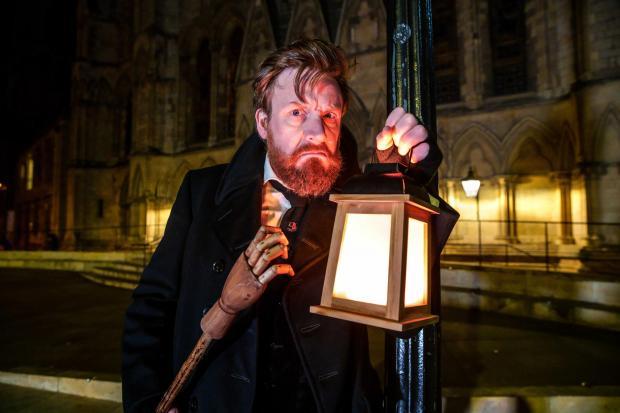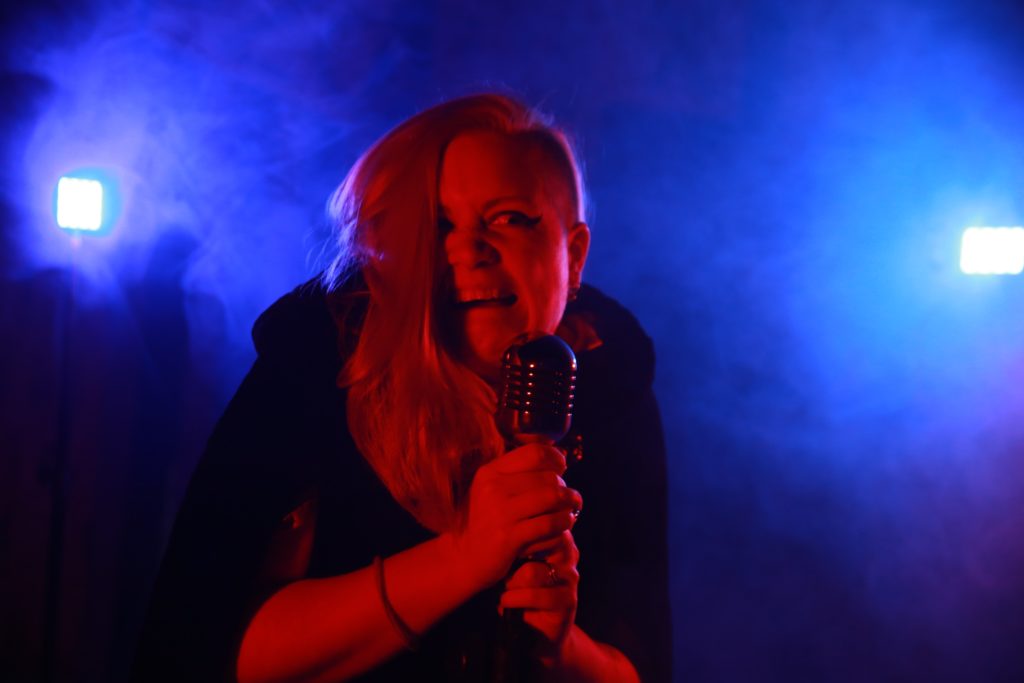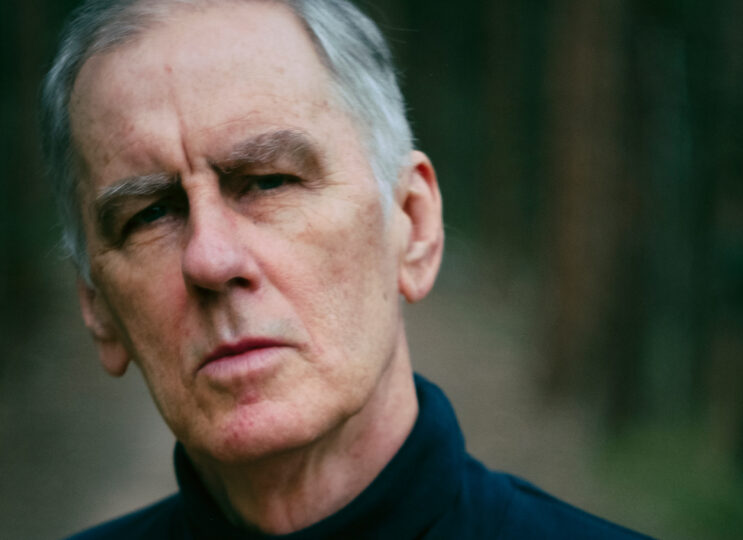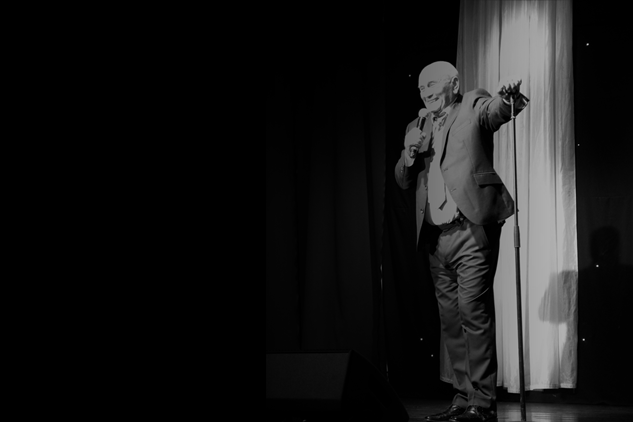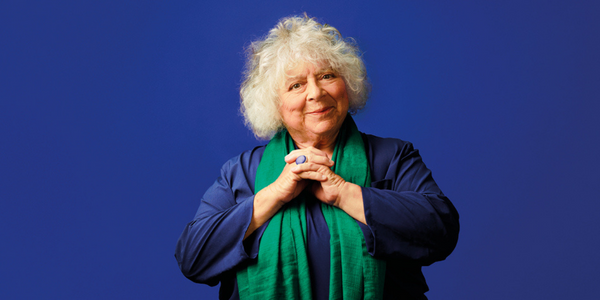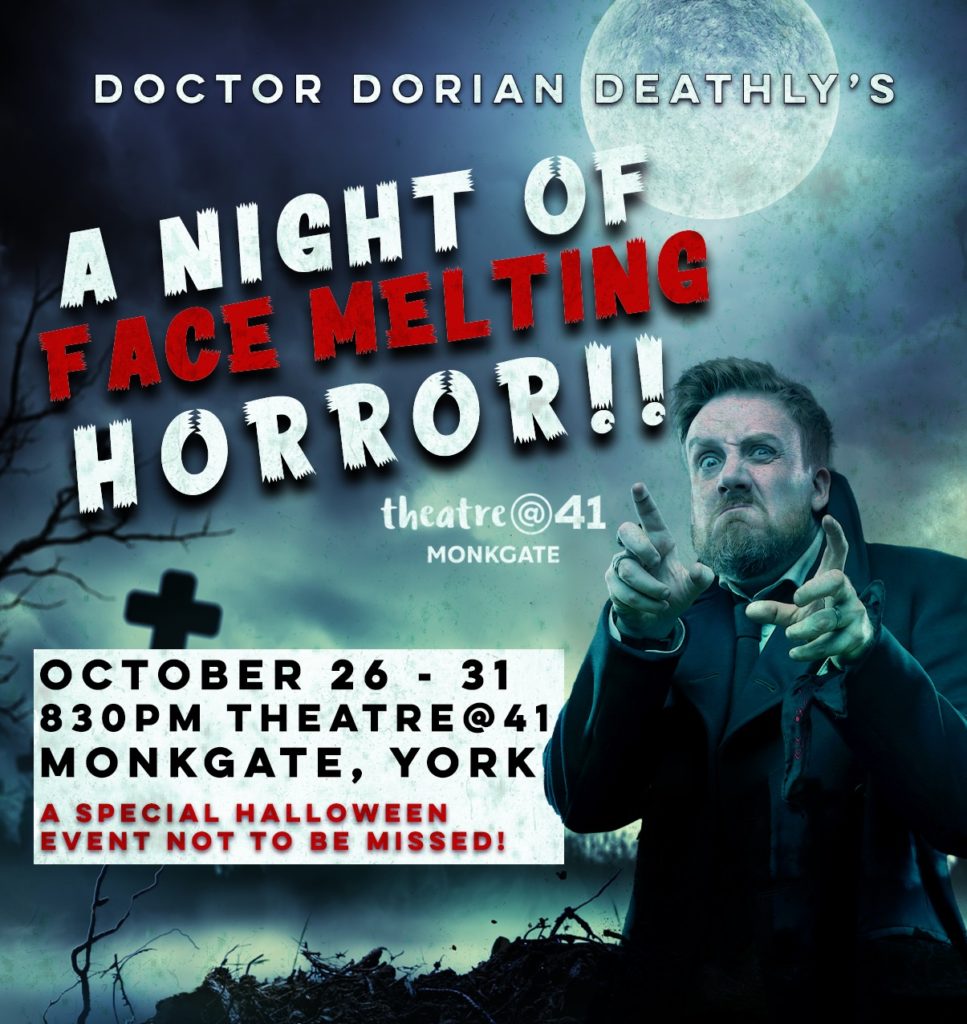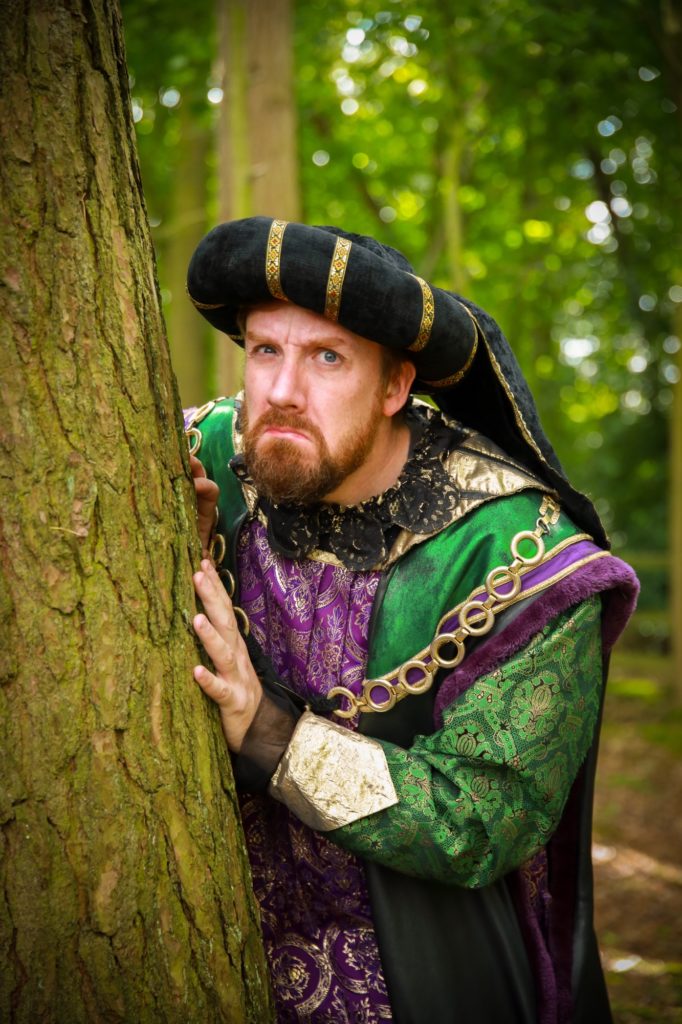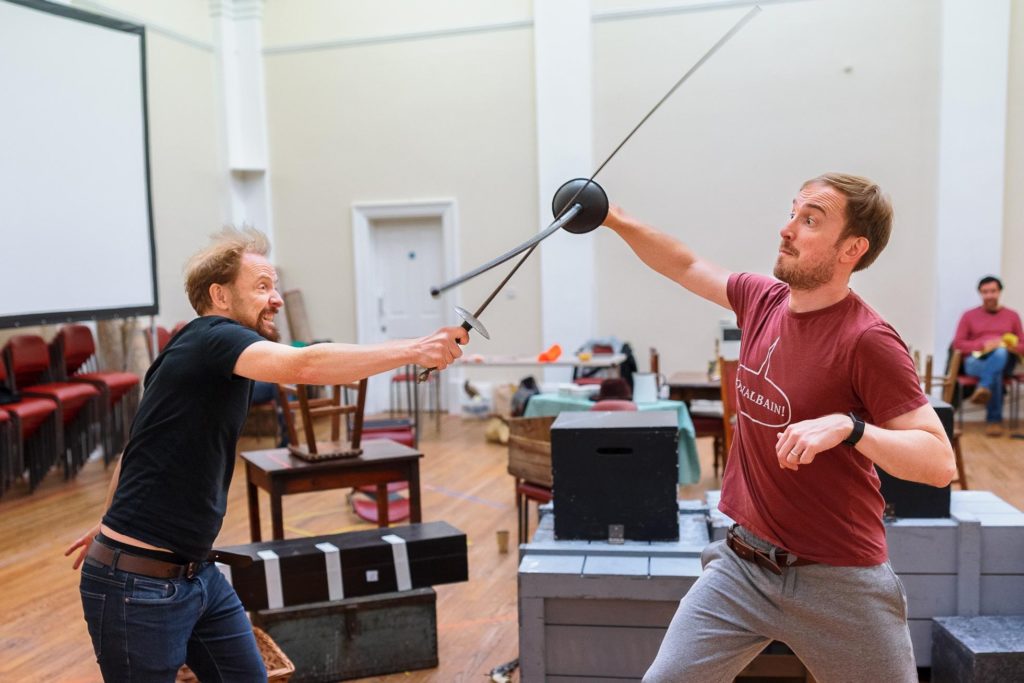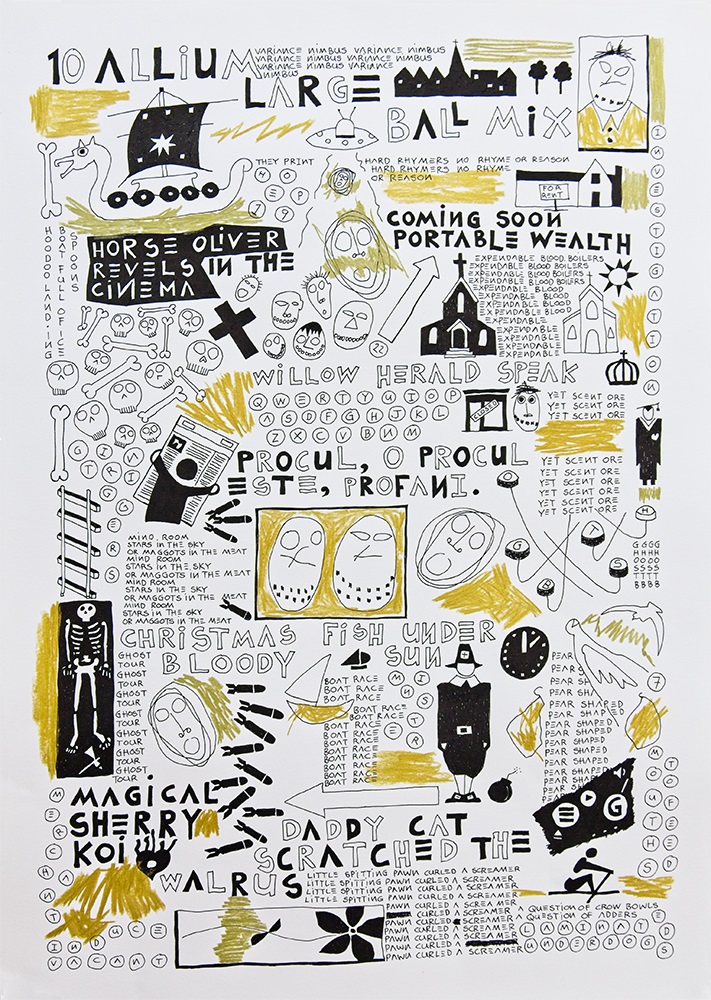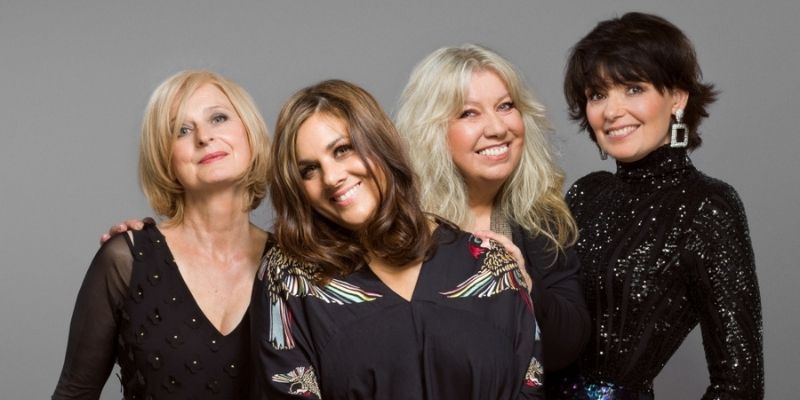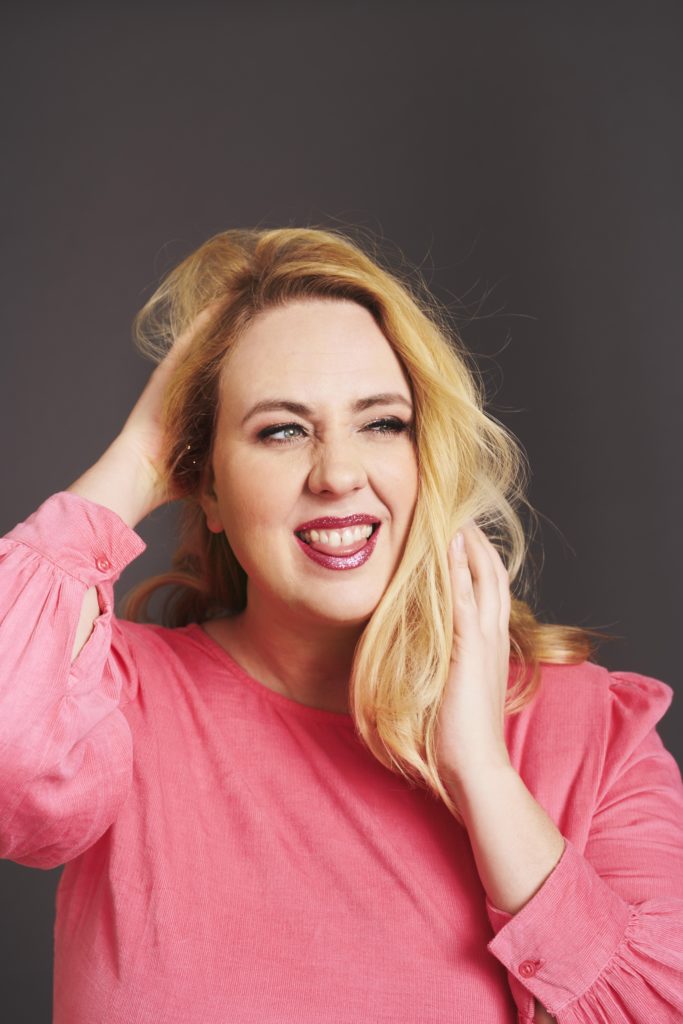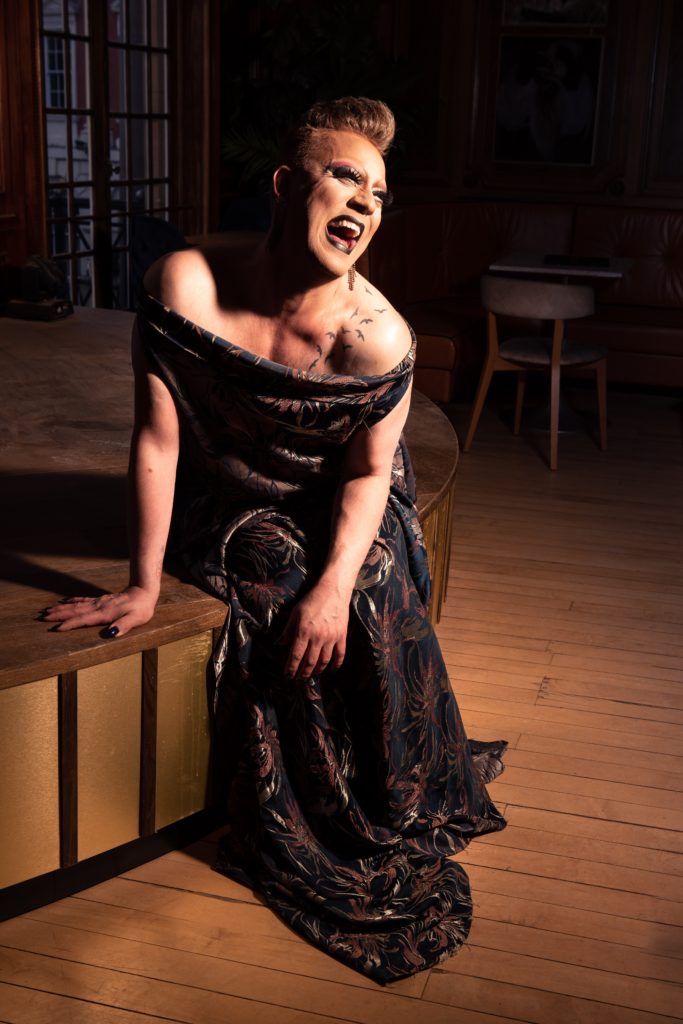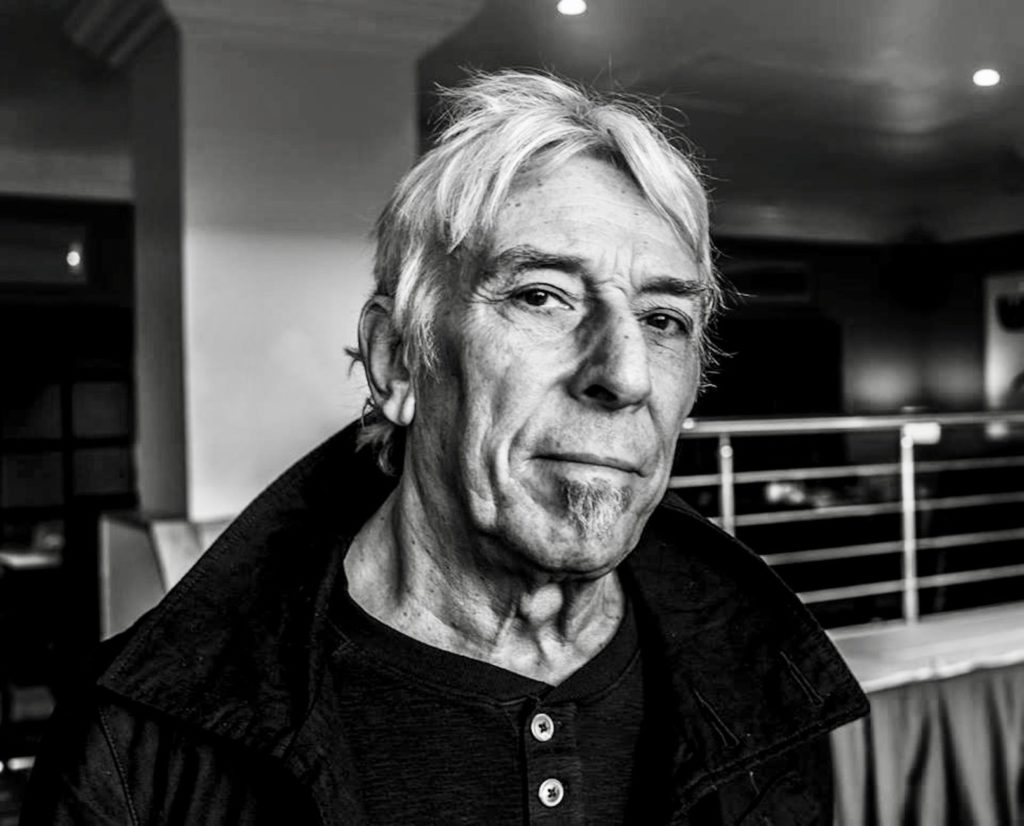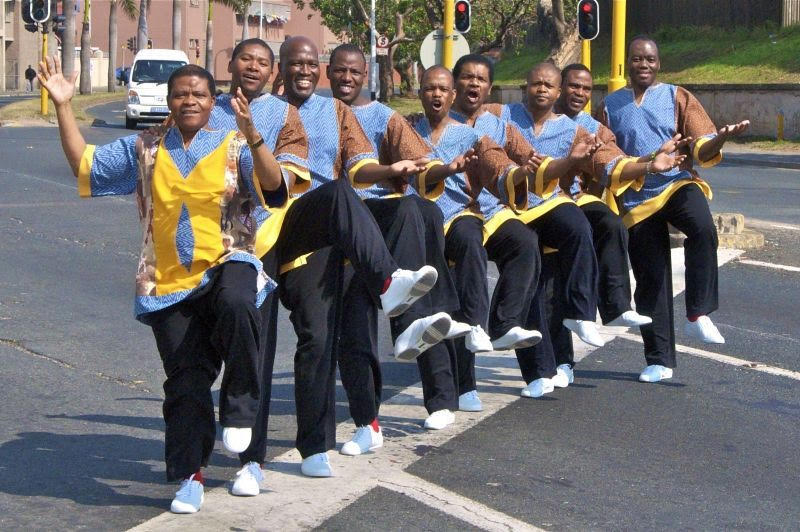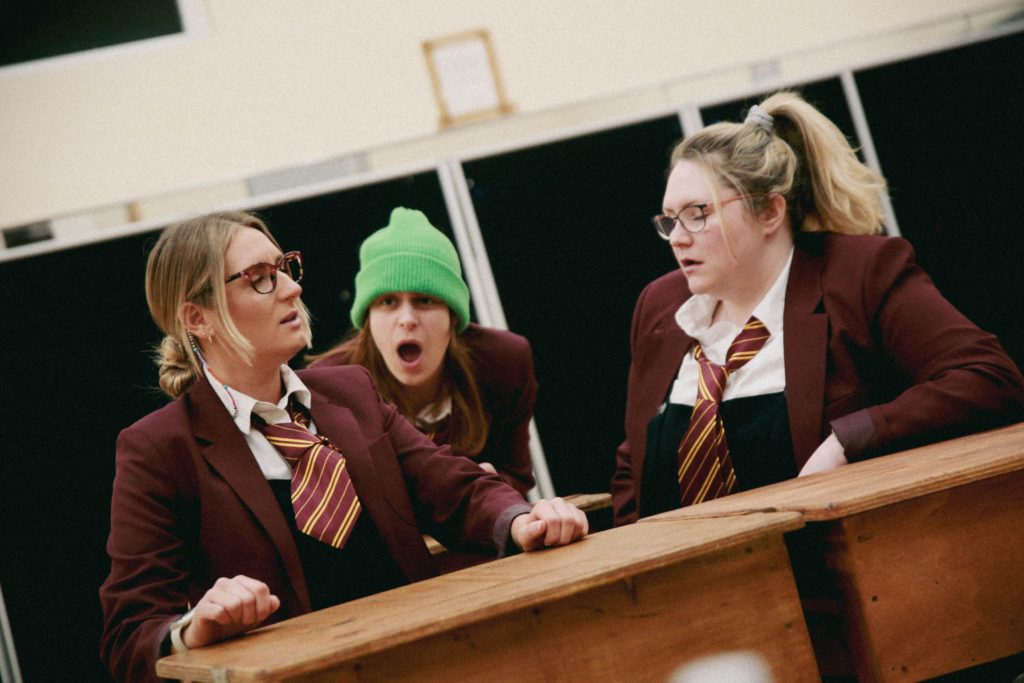
ACTOR, voiceover artist, filmmaker, tour guide, pantomime villain and York ghost-walk host Jamie McKeller is turning his hand to directing.
More precisely, he is reacquainting himself with the director’s seat after a 15-year hiatus, at the helm of former teacher John Godber’s 2022 update of Teechers, his state-of-education play originally commissioned by Hull Truck Theatre for £100 in 1984.
Why now, Jamie? “I did the Rowntree Players’ pantomime last Christmas [playing the Sheriff of Nottingham in Babes In The Wood] and had a great time. Afterwards, Howard [Ella, the director] said, ‘we’re doing Teechers next’, and I thought, ‘Ooh, it’s been a while since I directed, I fancy doing that’. So, I pitched for it, and later that week the committee said yes.”
Jamie’s production of Teechers Leavers ’22 opens at the Joseph Rowntree Theatre, York, on Thursday with an all-female cast – YorkMix radio presenter Laura Castle as Gail, Joseph Rowntree School drama teacher Sophie Bullivant as Salty and Rowntree Players regular Sara Howlett as Hobby – in keeping with Godber’s revised version for Hull Truck Theatre’s 50th anniversary last year.
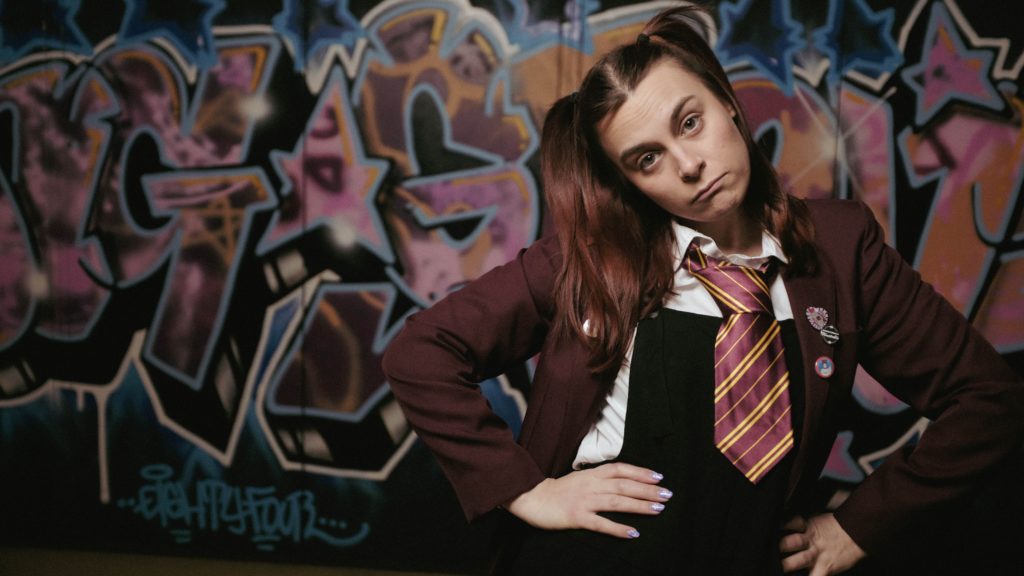
In Godber’s play within a play, they adopt multiple roles as the trio of Year 11 school leavers put on a valedictory performance, inspired by their new drama teacher but hindered by myriad obstacles and classroom poltics that vex playwright and pupils alike.
Jamie is no stranger to fellow Yorkshireman Godber’s work, both on and off stage. “I’ve been in Bouncers twice, as Judd and Les, but I’m still too young for Lucky Eric, so there’s time yet for that,” says Scarborough-born Jamie, who is 42.
“I was Salty in Teechers and did Lucky Sods in 2004, and I’ve already directed Teechers once in Scarborough in 2003 and Bouncers once too.”
In fact, whether in his university days at Hull University from 1998 or when studying Performance: Theatre at York St John University from 2006 to 2008 or working his way through Terry Pratchett stories at the YMCA Theatre in Scarborough, when doing his BTEC in theatre, he has directed more than 20 productions.
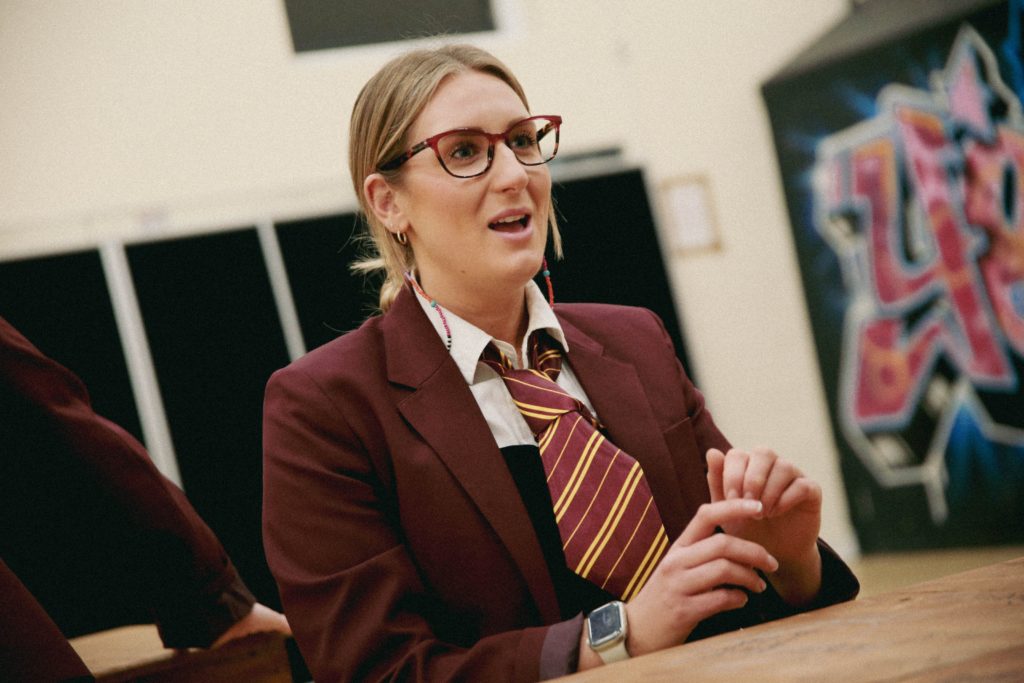
“But it’s now been a long time since I last directed a play. Not counting my self-directed shows that I took to the Edinburgh Fringe for five years, the last one was Danny King’s The Pornographer Diaries in 2008, here in York at Friargate Theatre, but originally I always wanted to be a director more than an actor,” says Jamie.
“I’d like people to become aware of me as a director as I’d forgotten the passion I had for it, and it’s where I feel most at home, cooking up ridiculous visuals in my head – so working with these three actors has been an absolute dream.”
6ft tall Jamie is a familiar cloaked figure on the streets of York at night, in the guise of spookologist Doctor Dorian Deathly, ghost tour guide for the award-winning Deathly Dark Tours, but he has a posse of guides to call on, enabling him to take time away from his “night job”, whether to do panto last winter or be at the helm of Teechers.
His enthusiasm for play and cast alike is writ large. “What I really like about Godber is that he’s always prefaced his scripts by saying, ‘make it work for your cast, make it work for the times, because if you don’t update it, it will be a museum piece,” says Jamie.
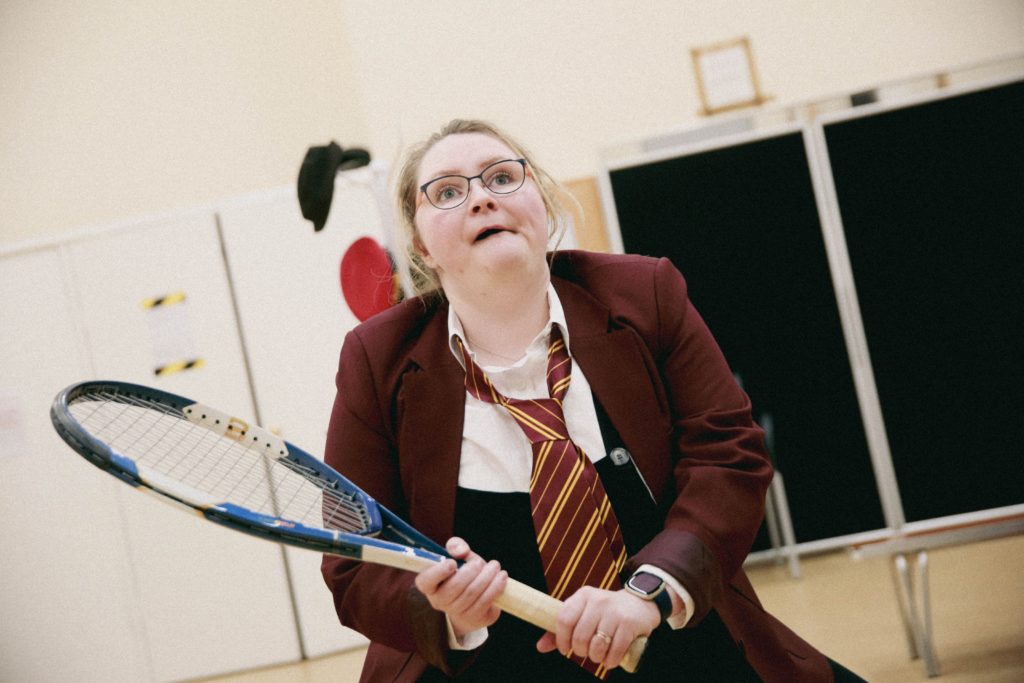
“We’re delighted to be doing the 2022 version, where we’ve kept the politics, but eased back on the Covid material, as we’ve lived through it, though it’s still there in the dialogue, but just not at the forefront.”
Godber’s impassioned belief in the importance of the arts in the curriculum hits home with Jamie, from past experience. “The resources at York St John were being shrunk all around me. The Chapel theatre was closed in 2006, just before I went there, to become a conference hall, and I ended up rehearsing my last play there in my garden and then staging it in the quad at York St John as a sort of protest. That struggle for facilities still resonates with me,” he says.
“I make my living out of performing, but after a ghost walk tour, I’ve been asked ‘what else do you? Don’t think you should have a proper job?’. There’s still that dismissive attitude towards creativity as an occupation.”
On a positive note, Jamie loves the musicality in Godber’s writing. “When you get it right, it’s almost like Shakespeare, where if you see it performed poorly it’s an unpleasant experience, but it can be wonderful. That’s the same with Godber, which is why we’ve done lots of work on the rhythm and tempo,” he says.

Selected from open auditions, Castle and Bullivant are making their Rowntree Players debuts alongside Sara Howlett. “We wanted to find three actors that would instantly gel,” says Jamie. “We weren’t looking for the greatest actors, but the best combination, and they turned out to be great actors too!
“Having these three together, they’ve definitely bonded and become friends as well, meeting outside rehearsals and running their lines. They really care about getting it right and doing it well.
“The way it’s written, it requires a heightened style of performance, where you need to fill it with physicality too – and they’ve really put in the hard work for such a physically demanding play where they never leave the stage.”
Rowntree Players in Teechers Leavers ’22, Joseph Rowntree Theatre, York, March 16 to 18, 7.30pm and 2.30pm Saturday matinee. Box office: 01904 501935 or josephrowntreetheatre.co.uk.
One question for John Godber
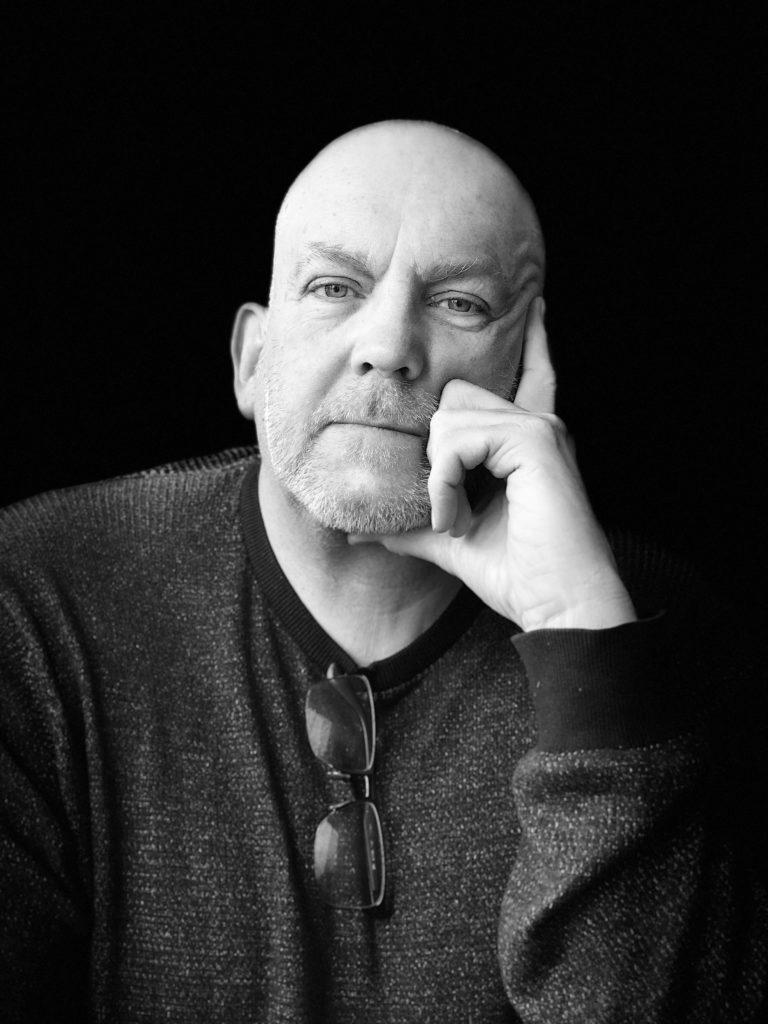
What were the biggest changes/themes you had to include in this reimagined version of Teechers, John?
“OBVIOUSLY, the language has changed, teenagers now have a whole new vernacular which had to be incorporated to make the characters seem real and authentic.
“I also changed the drama teacher character from male to female. Quite simply this is because when I wrote the play, I based that character on myself and my experience as a drama teacher.
“But now I have two daughters – one of whom [Martha] is an actress, the other [Elizabeth] has a PHD in gender studies – so I thought it’d be interesting to make that character female. Also, and this may have just been a coincidence, but many of the teachers I spoke to were women, so it made sense to write it as a female role.
“The impact of the pandemic is also a big theme as I feel it put the whole education system – and its failings, especially for working-class students – under a microscope. Digital poverty is a huge issue now and students not being able to access the internet via a computer or phone during lockdown meant for many – they couldn’t access their education for a major portion of those two years.
“The repercussions of this are huge – isolation, loss of communication skills, diminishing attention spans. However, I truly believe that harnessing the power of storytelling – whether that’s through writing or acting – is a way of overcoming these problems, which is another reason the arts should be a priority now more than ever and why this particular story resonates so much still today.”


